560 rezultāti atrasti
Skip results of view Ziņas
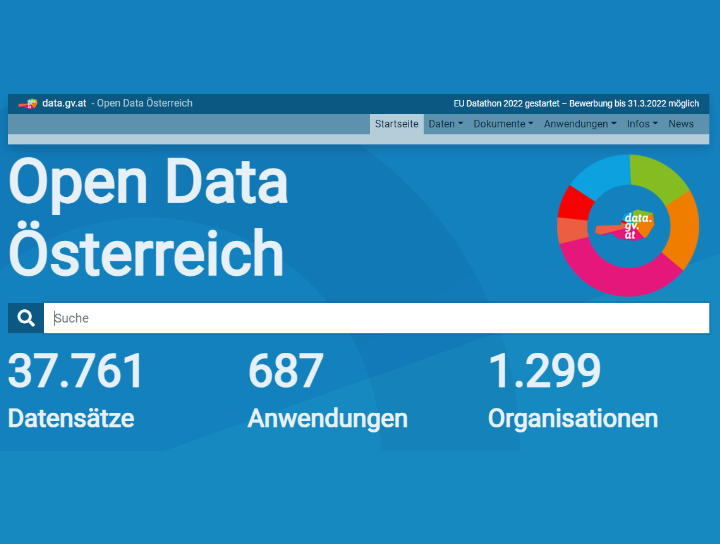
At the end of December 2021, the European Medical Association authorised the use of the protein-based Nuvaxovid vaccine. With shipments arriving in Member States, open-data portals have started to track their distribution and use. In Austria, on 1 March 2022, the Austrian Open Data Portal updated their open data files to include information about Nuvaxovid. This data, published as a CSV file, includes COVID-19 vaccine doses administered by age and gender, divided by province, for all approved vaccines. Various government-run dashboards at a national and regional level use open data to

On Wednesday, 23 March, you can join an online information session on the European Commission’s call for proposals for public-sector open data for Artificial Intelligence. Besides explaining how to participate, this session helps connect potential consortium partners, giving participants a chance for a two-minute pitch. The goal of the grants available from this call is to support public administrations at local, regional and national levels to increase semantic, technical and legal interoperability with the High Value Datasets (HVDs) as described by the Open Data Directive. This includes data
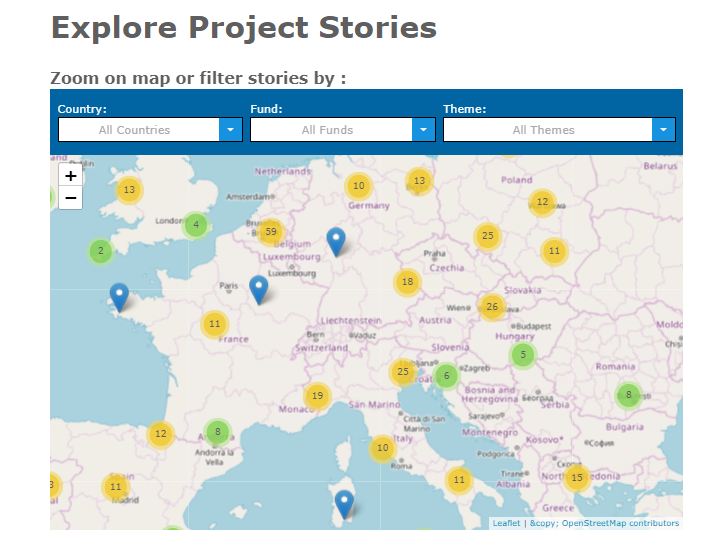
From 2014 to 2020, the European Union reportedly spent €358 billion within the European Structural and Investment Funds (ESI Funds) to help regions of the European Union to reform their economies. This included helping small businesses, increasing employment, and promoting an environmentally friendly economy. Such a large investment makes it very important to promote transparency in how funds were used, which is exactly what the Cohesion Open Data Platform provides. This platform visualises data for over 530 programmes using interactive charts. For example, the platform shows that, in 2021
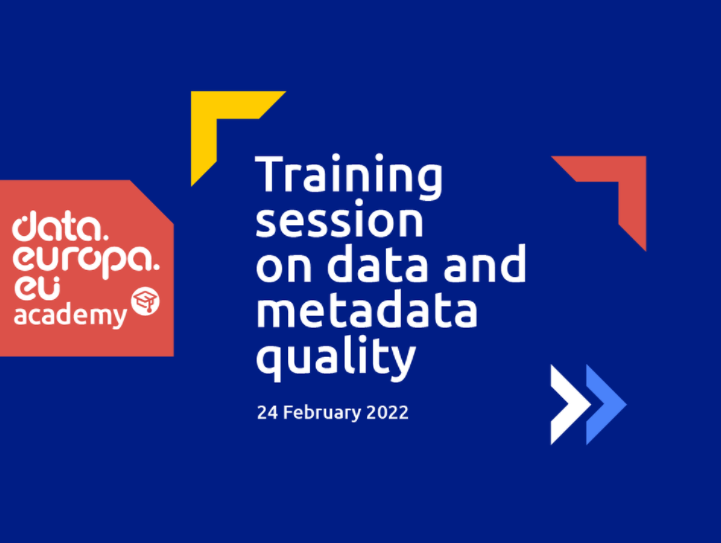
Learn more about data and metadata quality by watching the recording of the latest data.europa academy training session! In the session, Benjamin Dittwald and Lina Bruns from Fraunhofer FOKUS , a technical partner of the data.europa.eu, showcase: Data quality dimensions: Findability, Accessibility, Interoperability, and Reusability, also known as the FAIR principles The data preparation process The difference and connection between data quality and metadata quality Metadata quality standards such as DCAT-AP and the data.europa.eu Metadata Quality Assessment The data.europa.eu data quality
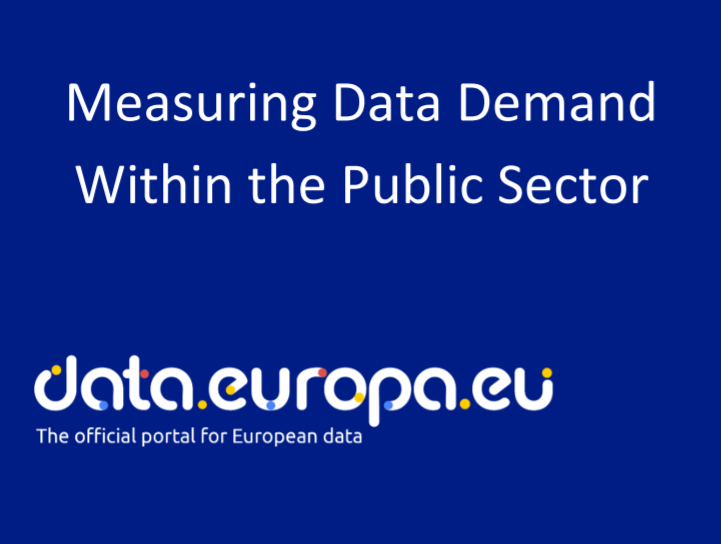
What data do public sector re-users need? The answer to this question is critical both to facilitate data publication and to support re-users from EU institutions and public authorities in Member States in their policymaking, service provision and management. To what extent is this question already asked in open data policymaking across Europe? Recently, data.europa.eu published a discussion paper “ Measuring data demand within the public sector ” that dives into this topic. This discussion paper reviews state-of-the-art approaches and indicators to assess public institutions’ needs as data re
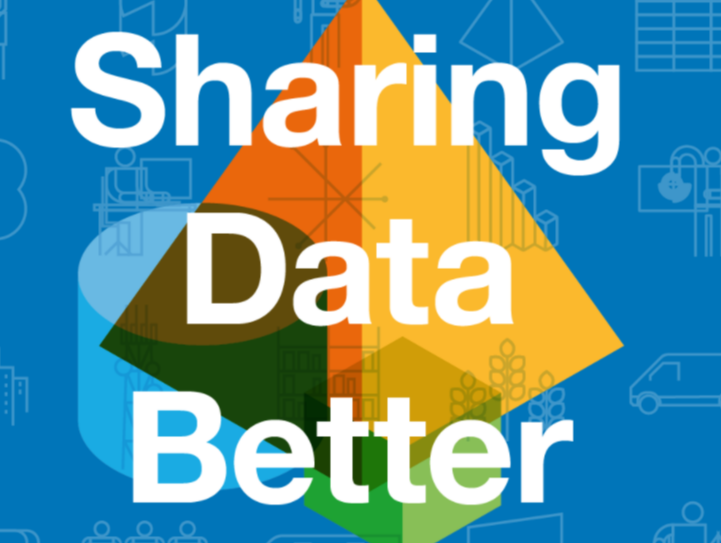
Join the Open Data Institute event Sharing Data Better: The Rise of Data Institutions on Wednesday, 30 March from 15:00-19:00 CET! Responsible, trustworthy access to data is not a given. It is the result of institutions defining who has access, for what purposes and to whose benefit. The event will show how data institutions—those who collect, maintain and share data for public, educational or charitable aims—are driving a future where data creates positive economic, societal and environmental impacts. The programme focuses on the role data institutions play in addressing some of society’s
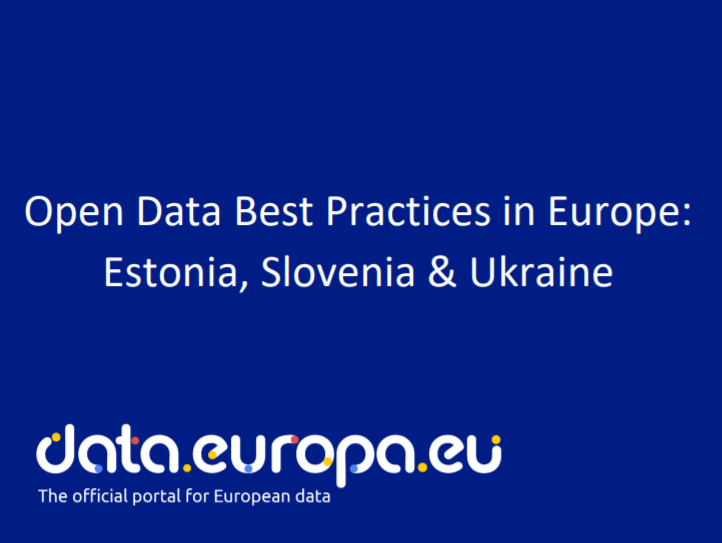
Learn from the open data best practices of Estonia, Slovenia and Ukraine in the latest report! The report highlights these three countries, which have markedly improved their open data maturity score. The report summarises in-depth interviews with representatives of the national open data teams and their responses to the extensive questionnaire that was a part of the 2021 Open Data Maturity assessment . The representatives share their best practices, providing inspiration to governments who want to improve their own open data related activities. What can national open data teams do to improve
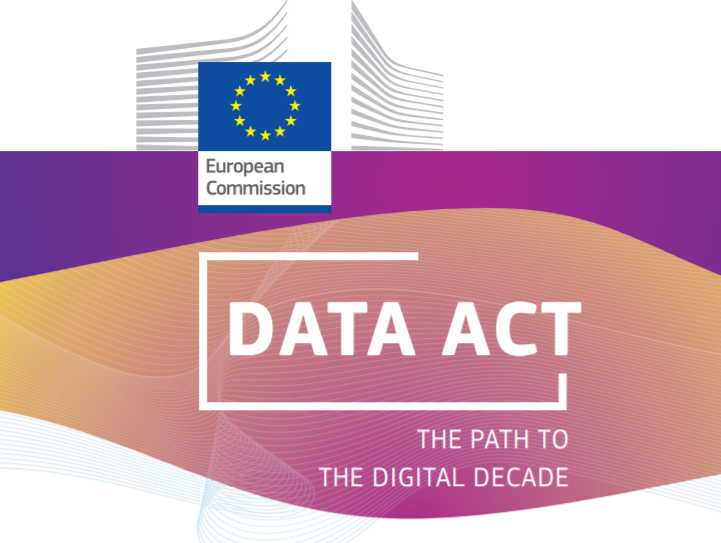
Find out more about the new Data Act that helps shape Europe’s digital future! On 23 February 2022, the European Commission proposed new rules on who can use and access data generated in the European Union. This Data Act—as part of the European Strategy for Data —will play a key role in the digital transformation of Europe. It will help to ensure fairness in the digital environment, stimulate a competitive data market, open opportunities for data-driven innovation and make data more accessible for everyone. Margrethe Vestager, Executive Vice-President for a Europe fit for the Digital Age, said
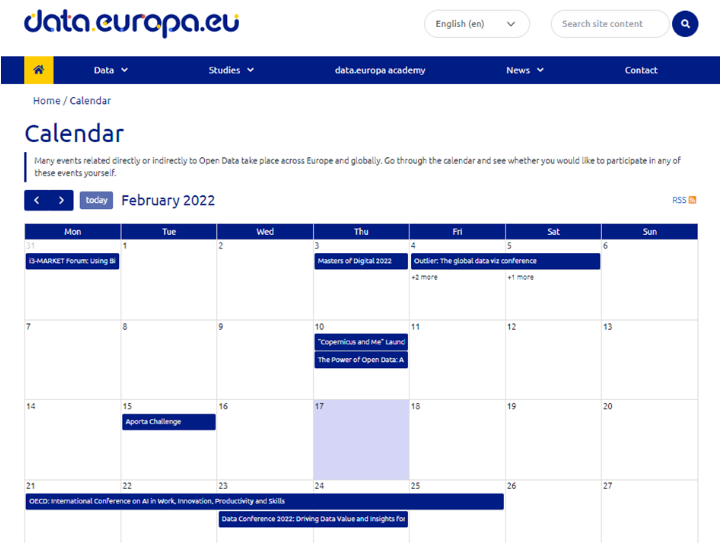
2022 promises to become a year full of open data events hosted throughout Europe. During these events, you not only learn about open data topics, but also learn how to effectively re-use open data. The data.europa.eu event calen d ar collects these upcoming open data-related events throughout Europe. There are limitless possibilities to learn about and re-use open data, for example by participating in hackathons and other competitions. The following upcoming events offer a glimpse of these possibilities . Nordic AI & Open Data Hackathon The Nordic AI & Open Data Hackathon aims to demonstrate
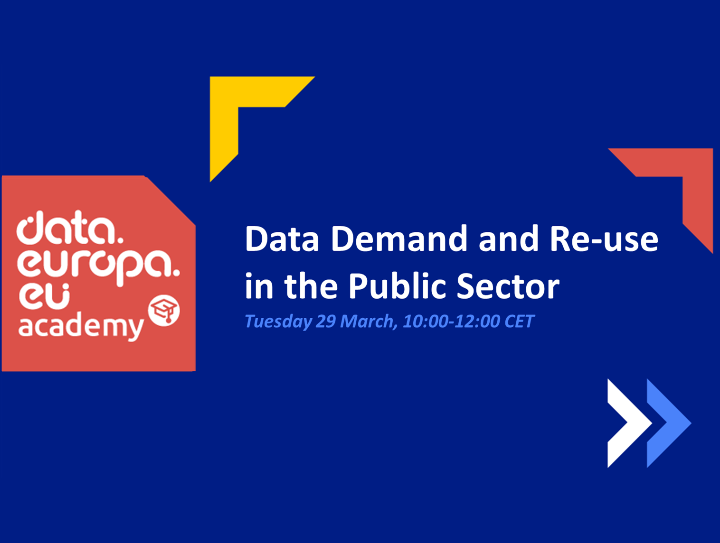
Join the data.europa academy ’s webinar ‘Data Demand and Re-use in the Public Sector’ to learn more about the importance of measuring the public sector demand of data. This webinar builds on data.europa.eu’s recently published discussion paper ‘ Measuring Data Demand Within the Public Sector’ and will be hosted on Tuesday 29 March from 10:00-12:00 CET. Understanding data demand is gaining importance as data providers take more and more into account what data the end user wants and needs. Up until recently, most attention went to data demand in the private sector, but there is much to gain from
